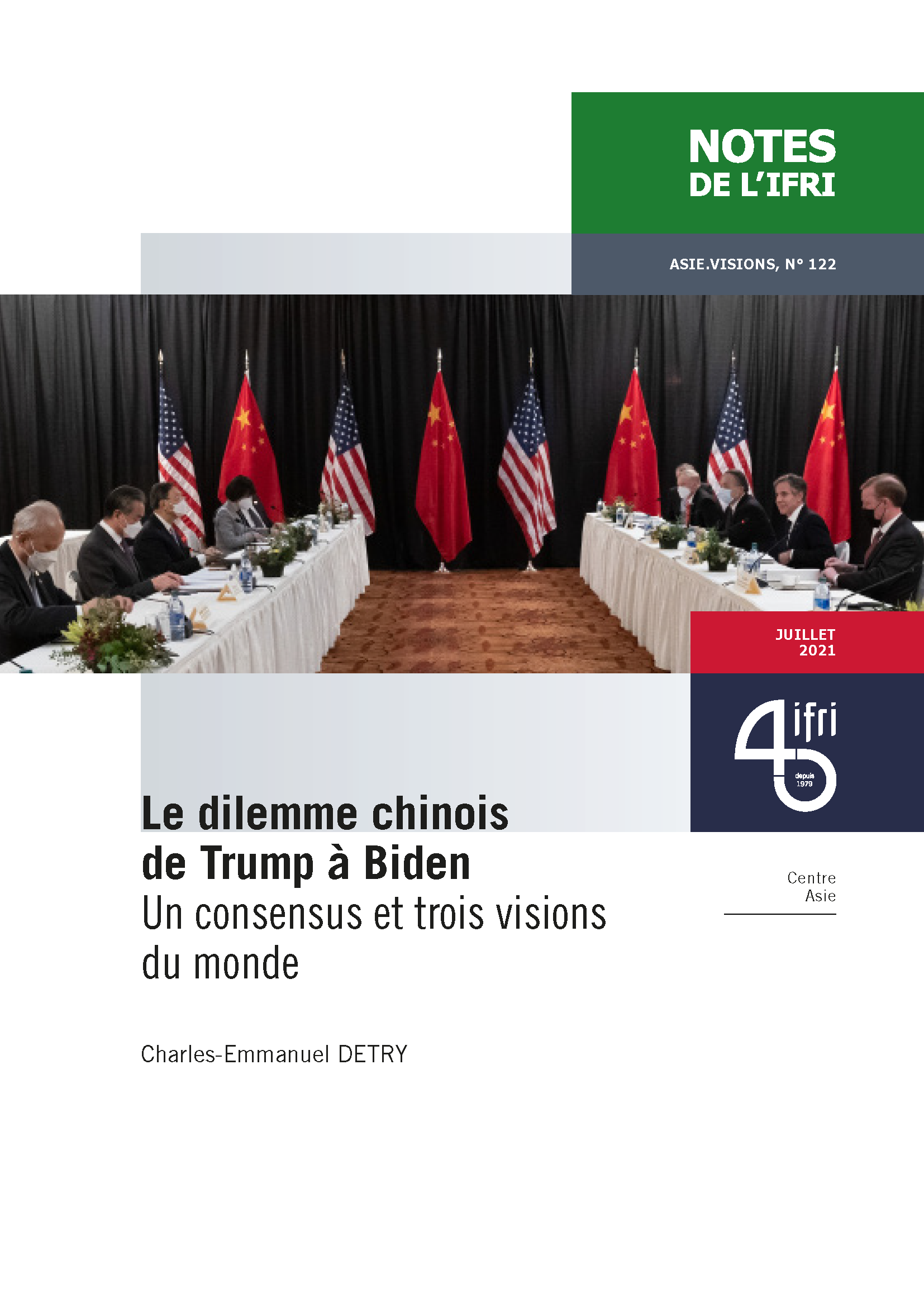The China dilemma from Trump to Biden: one consensus and three worldviews

The United States underwent a fundamental transformation in its stance on China during the Trump presidency.
This shift is perceived as the expression in Washington of a new consensus on the failure of 40 years of engagement. The policy stands accused of having enabled the rise of an alarmingly powerful China, without rendering it any less dictatorial than in the past. As a result, Sino-American antagonism is deemed inevitable and stands as a given for the new Biden administration.
Yet, this seemingly unanimous diagnosis (China is the enemy) does not lead to an agreement on the policy to be implemented (how should this enemy be dealt with?). An assessment of the past four years reveals hesitations that can not be solely attributed to the former president’s idiosyncrasies. As argued below, this indecisiveness is the product of three conflicting tendencies that differ in how they project the kind of international order in which the United States and China may coexist.
According to the first initiatives of Joe Biden’s new team, the introduction of a narrative of struggle between democracies and autocracies and the persistent need for cooperation place the Democrats in front of the same dilemma as their predecessors’.
The full text of this paper is only available in French: https://www.ifri.org/fr/publications/notes-de-lifri/asie-visions/dilemme-chinois-de-trump-biden-un-consensus-trois-visions
Related centers and programs
Discover our other research centers and programsFind out more
Discover all our analysesJapan’s Takaichi Landslide: A New Face of Power
Prime Minister Sanae Takaichi has turned her exceptional popularity into a historic political victory. The snap elections of February 8 delivered an overwhelming majority for the Liberal Democratic Party (LDP), driven by strong support from young voters, drawn to her iconoclastic and dynamic image, and from conservative voters reassured by her vision of national assertiveness. This popularity lays the foundation for an ambitious strategy on both the domestic and international fronts.
The U.S. Policy Toward Taiwan Beyond Donald Trump: Mapping the American Stakeholders of U.S.-Taiwan Relations
Donald Trump’s return to the White House reintroduced acute uncertainty into the security commitment of the United States (U.S.) to Taiwan. Unlike President Joe Biden, who repeatedly stated the determination to defend Taiwan, President Trump refrains from commenting on the hypothetical U.S. response in the context of a cross-Strait crisis.

China’s Strategy Toward Pacific Island countries: Countering Taiwan and Western Influence
Over the past decade, China has deployed a diplomatic strategy toward the Pacific Island Countries (PICs). This strategy pursues two main objectives: countering Taiwan's diplomatic influence in the region and countering the influence of liberal democracies in what Beijing refers to as the "Global South."

Opening up the G7 to South Korea to Address Contemporary Global Challenges
The G7’s global influence has diminished as powers like China reshape international governance through initiatives such as BRICS and the Shanghai Cooperation Organisation (SCO). With the G7 now representing just 10 per cent of the world’s population and 28 per cent of global GDP, its relevance is increasingly questioned.









